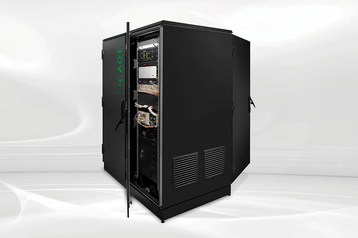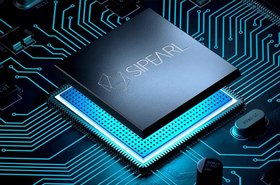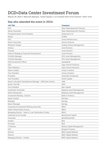A quantum computer has been integrated with a classical supercomputer the University of Innsbruck, Austria.
The university and one of its spin-out companies, AQT, announced this week that they had integrated a quantum computer into a high-performance computing (HPC) environment. It is the first time this has been achieved in Austria.
The Innsbruck team has connected the university’s LEO5 cluster with AQT's IBEX Q1 quantum computer.
AQT's IBEX Q1 system is housed within standardized rack infrastructure. Unlike some supercooled systems, the company’s laser-based quantum computer fits into two custom racks and can reportedly operate at room temperature with a power consumption of less than 2kW.
Launched last year, LEO5 comprises 63 nodes, including a total of 36 nodes featuring Nvidia A30, A40, and A100 GPUs. It offers a total of 300 teraflops at FP64 (740 teraflops at FP32).
“With the advent of quantum computers and their potential to solve certain problems in chemistry or materials science much faster than is classically possible, quantum accelerators for HPC computers are a new, very exciting possibility,” said Thomas Monz, assistant professor at the University of Innsbruck and CEO of AQT.
The deployment is part of the FFG-funded HPQC project to demonstrate hybrid quantum solutions. FFG is the Austrian funding agency for business-related research, development, and innovation.
"The successful integration of a quantum computer into a high-performance computing environment marks a significant milestone for Austrian and European research and technology development,” Henrietta Egerth, managing director of the FFG. “This opens up completely new possibilities for mastering complex scientific and industrial challenges and shaping the future of computing. This project impressively demonstrates the innovative power and technological lead that we can achieve in our country and shows the enormous potential and independence of the EU in quantum technologies. The FFG is proud to support this groundbreaking development.”
The University of Innsbruck also operates the LEO3e and LEO4 clusters.
AQT's systems are ion trap-based quantum computers, a method where a linear chain of ions is confined through electric potential using direct current and radio-frequency fields, thus making qubits. The method can be run at room temperature, though the ions themselves need to be laser-cooled to a near-ground state. AQT has thus far achieved a quantum volume of 128 and the system can be housed directly in a standard 19-inch rack cabinet.
A spin-off of the University of Innsbruck and the Austrian Academy of Sciences, AQT has previously partnered with T-Systems, giving the latter’s customers access to the quantum company’s hardware through a cloud portal.







